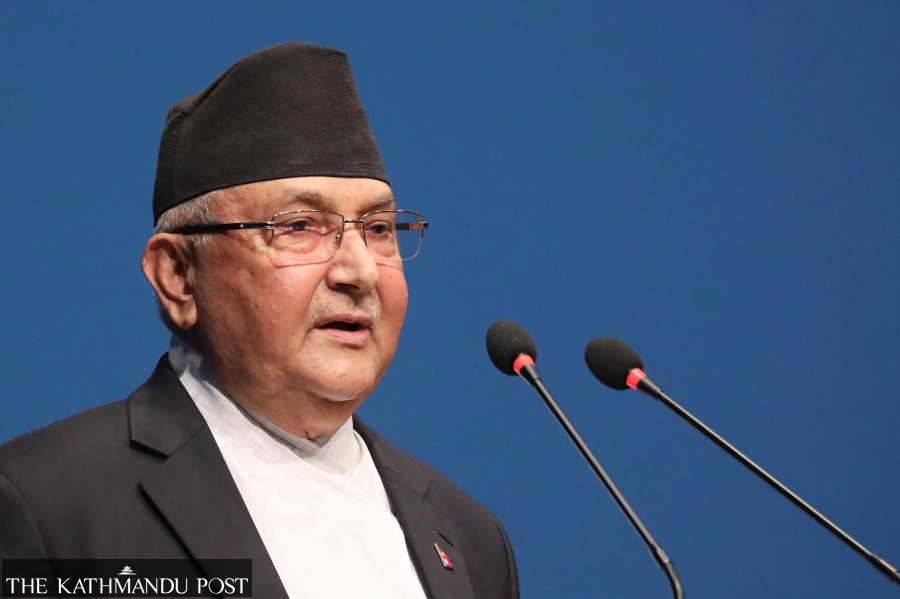Editorial
Oli’s autocratic bent
With the UML chair muzzling criticism in his party, it is hard to believe he is committed to democratic values.
By trying to silence his critics in the party, Prime Minister KP Sharma Oli, who is also chairman of the CPN-UML, has again shown his autocratic character. A central secretariat meeting of the party that Oli chaired on October 20 decided to seek clarification from the party’s standing committee member Binda Pandey, central committee member Ushakiran Timsena, and former vice-chair Bhim Rawal for “speaking against the party’s interest”. Their crime? Criticising the chair’s decision to accept donation from a controversial businessman. Min Bahadur Gurung, owner of the largest retail chain in Nepal, the Bhatbhateni Supermarket, had just provided land and announced plans to build a sophisticated office building for the communist party. This didn’t sit well with some UML leaders as Gurung is someone against whom multiple corruption and forgery cases are sub-judice in the court.
Nepal’s top politicians don’t tire of preaching to people about their commitment and contribution to democracy, freedom of expression and equality. They often boast of fighting for decades against kings’ autocratic rule. “We fought for democracy and we accept only democracy”, Oli said in a meeting of the ruling parties on Wednesday. In his televised address to the nation later in the afternoon, he spoke of “the long struggle and contribution of Nepali Congress and CPN-UML for democracy”. But waning intra-party democracy in his own party gives a lie to such commitments.
Oli however was a different leader before he became the party chief in 2014. He fought against the autocratic tendencies of the then UML leadership and strongly criticised some decisions of the party establishments when Madhav Kumar Nepal and Jhalanath Khanal led the party. At times, he even challenged the party’s official decisions and forced the establishment to correct them with the backing of a strong faction he led. Those from the party establishment often blamed him for running a parallel organisation within the mother party.
But when he took the helm a decade ago, he suddenly started displaying authoritarian tendencies, much more so than his predecessors. In the Chitwan general convention held in November 2021, aspiring to be the unopposed party chair, he attempted to bar any leader from challenging his candidacy. He instructed party delegates to rubber stamp the list of office bearers he had prepared. A group of leaders led by Bhim Rawal and Ghanashyam Bhusal insisted on election of the leadership through voting. Later, Oli ruthlessly sidelined the two leaders. Eventually, Bhusal quit the party while Rawal’s role was curtailed.
In private conversations, some UML leaders, who used to strongly support Oli in the past, now express frustration over his arbitrary and autocratic working style. They say they earlier supported Oli as he fought against the party establishment and helped democratise the UML. Before him, the party was hailed for its rigorous democratic practices in leadership selection and decision making, from the local to the top level. Frustrated, even staunch supporters of Oli such as Gokul Baskota and Karna Bahadur Thapa have now distanced themselves from him. Standing committee member Pandey, who always supported Oli in intra-party struggles, is now Oli’s latest target. It will be hard for people to believe that their prime minister, who brutally suppresses dissent in his own party, is committed to democratic norms and values when it comes to governing the country.




 18.12°C Kathmandu
18.12°C Kathmandu














